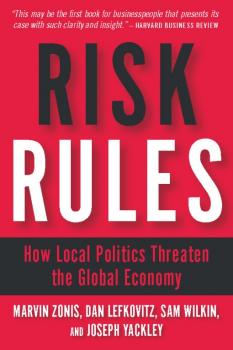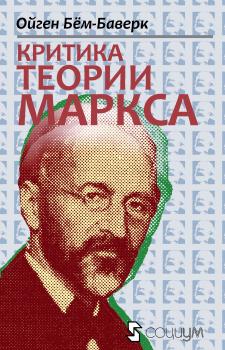Экономика
Различные книги в жанре ЭкономикаMoney in a Free Society
In the 15 years to mid-2007 the world economy enjoyed unparalleled stability (the so-called “Great Moderation”), with steady growth and low inflation. But the period since mid-2007 (“the Great Recession”) has seen the worst macroeconomic turmoil since the 1930s. A dramatic plunge in trade, output and employment in late 2008 and 2009 has been followed by an unconvincing recovery. How is the lurch from stability to instability to be explained? What are the intellectual origins of the policy mistakes that led to the Great Recession? What theories motivated policies in the USA and other leading nations? Which ideas about economic policy have proved right? And which have been wrong?Money in a Free Society contains 18 provocative essays on these questions from Tim Congdon, an influential economic adviser to the Thatcher government in the UK and one of the world’s leading monetary commentators. Congdon argues that academic economists and policy-makers have betrayed the intellectual legacy of both Keynes and Friedman.These two great economists believed – if in somewhat different ways – in the need for steady growth in the quantity of money. But Keynes has been misunderstood as advocating big rises in public spending and large budget deficits as the only way to defeat recession. That has led under President Obama to an unsustainable explosion in American public debt. Meanwhile the Fed has ignored extreme volatility in the rate of money growth, contrary to the central message of Friedman’s analytical work. In his 1923 Tract on Monetary Reform Keynes said, “The Individualistic Capitalism of today, precisely because it entrusts saving to the individual investor and production to the individual employer, presumes a stable measuring-rod of value, and cannot be efficient–perhaps cannot survive–without one.” In Money in a Free Society Congdon calls for a return to stable money growth and sound public finances, and argues that these remain the best answers to the problems facing modern capitalism.
Invisible Wealth
The discipline of economics is not what it used to be. Over the last few decades, economists have begun a revolutionary reorientation in how we look at the world, and this has major implications for politics, policy, and our everyday lives. For years, conventional economists told us an incomplete story that leaned on the comfortable precision of mathematical abstraction and ignored the complexity of the real world with all of its uncertainties, unknowns, and ongoing evolution.What economists left out of the story were the positive forces of creativity, innovation, and advancing technology that propel economies forward. Economists did not describe the dynamic process that leads to new pharmaceuticals, cell phones, Web-based information services—forces that fundamentally alter how we live our daily lives.Economists also left out the negative forces that can hold economies back: bad governance, counterproductive social practices, and patterns of taking wealth instead of creating it. They took for granted secure property rights, honest public servants, and the willingness of individuals to experiment and adapt to novelty.From Poverty to Prosperity is not Tipping Point or Freakonomics. Those books offer a smorgasbord of fascinating findings in economics and sociology, but the findings are only loosely related. From Poverty to Prosperity on the other hand, tells a big picture story about the huge differences in the standard of living across time and across borders. It is a story that draws on research from the world’s most important economists and eschews the conventional wisdom for a new, more inclusive, vision of the world and how it works.
Economics Does Not Lie
In the 20th century, privatization and market capitalism have reconstructed Eastern Europe and lifted 800 million people – in China, Brazil, and India – out of poverty. In Economics Does Not Lie, noted French journalist Guy Sorman reveals that behind this unprecedented growth is not only the collapse of state socialism but also a scientific revolution in economics – one that is as of yet dimly understood by the public but increasingly embraced by policymakers around the globe.
Risk Rules
Risk Rules is a comprehensive updating of the authors' critically praised The Kimchi Matters (Agate B2, 2005). The authors, a group of present and former University of Chicago political risk experts, return discussion of globalization and international relations to first principles. Globalization hype has obscured a few basic truths–that political stability and economic growth are usually determined on the local level, and that they're most affected by local institutions, leadership, corruption, and other such factors. Risk Rules shows that globalization (and events like the wars in Afghanistan and Iraq, and the September 11 attacks) makes understanding the political economies of distant countries more important than ever.Time and again, investors and foreign policymakers have been hurt because they haven't understood the unique local dynamics at work in a particular country or region. This truth holds for companies venturing abroad and for policymakers contemplating foreign challenges, and no less for small investors, voters, and others whose lives and finances are increasingly affected by distant world events. Risk Rules lays out an intuitive framework for making sense of international economic and political developments, whether negative (why markets in Argentina collapsed; why Russia stumbled, then rebounded, then stumbled again; why U.S. allies
Великая депрессия в Америке
Книга посвящена анализу причин самой страшной экономической катастрофы в истории США. Вначале автор кратко излагает теорию экономического цикла, с помощью которой будет анализировать исторические события (а также критикует некоторые альтернативные теории). Вторая часть посвящена инфляционному буму 1921—1929 гг., в ходе которого была подготовлена почва для фондового краха 1929 г. И наконец, в третьей части автор описывает экономическую политику, проводившуюся президентом США Гербертом Гувером после кризиса. Именно меры «борьбы» с кризисом, превратили неизбежный после любого искусственного бума краткосрочный экономический спад в глубочайшую депрессию с застойной массовой безработицей.
Критика теории Маркса
Исчерпывающий анализ ошибок и противоречий, содержащихся в теории ценности (стоимости) Маркса. Автор одиним из первых обратил внимания на противоречия между I и III томами Капитала. Не ограничиваясь указанием на внутреннюю противоречивость теории Маркса, автор точно указывает тот пункт, в котором ошибка проникла в систему, а также те пути, по которым она распространилась и разветвилась. Продемонстрировав несостоятельность разработанной Марксом теории ценности и, следовательно, теории прибавочной ценности, Бём-Баверк разрушил экономический фундамент теории эксплуатации, лишив научного обоснования социалистические политические лозунги.
Невмешательство и свобода торговли. История максимы Laissez faire et laissez passer
Известный немецкий исследователь истории экономических учений Август Онкен (1844—1911) изучает историю появления в XVII—XVIII вв. знаменитого лозунга либеральной экономической политики laissez faire et laissez passer (лесé фэр эт лесé пассэ; дайте делать, дайте пройти), означавшего требование свободы предпринимательства и свободы торговли. В книгу также включены отрывок из книги Г. Шелля о Жаке Венсане де Гурнэ, большая статья Дж. Вайнера об интеллектуальной истории максимы laissez faire et laissez passer с античности до начала XX в., а также параграф из книги Л. фон Мизеса «Человеческая деятельность», посвященный корректному пониманию смысла этой фразы в современном мире в противовес превратному ее толкованию сторонниками централизованного планирования.
Transforming San Antonio
San Antonio boasts one of the country’s fastest-growing metropolitan regions, thanks to visionary personalities, key politicians, a vibrant citizenry, and a bit of luck. In this lively behind-the-scenes account, former mayor Nelson Wolff focuses on four major developments — the San Antonio Spurs’ AT&T Arena, Toyota, the PGA Village, and the River Walk expansion — that transformed the city. This intriguing, highly readable journey through the contemporary life of one American city offers hope to all cities striving to recreate themselves.
NEW Global ICT-based Business Models
The New Global Business model (NEWGIBM) book describes the background, theory references, case studies, results and learning imparted by the NEWGIBM project, whichis supported by ICT, to a research group during the period from 2005-2011. The book is a result of the efforts and the collaborative work between SMEs, consultancies and researchers across various lines of business, competences and research domains. The book commences with a theoretical discussion of the business model and its innovation
literature and explains how this was a collaborative study by researchers from three Danish Universities. The book continues by describing, analyzing and showing how NEWGIBM was implemented in SMEs in different industrial companies/networks. Based on this effort, the researchers try to describe and analyze the current context, experience of NEWGIBM and finally the emerging scenarios of NEWGIBM.
The NEWGIBM book serves as a part of the final evaluation and documentation of the NEWGIBM project and is supported by results from the following projects: M-commerce, Global Innovation, Global Ebusiness & M-commerce, The Blue Ocean project, International Center for Innovation and Women in Business, NEFFICS, which provided information about the innovating business models funded by Ministry of Science and Innovation Denmark, Ministry of Economics Denmark, EU Social Fund, EU KASK program and EU 7 Framework program Internet of Things. This book adds new knowledge to the global business models based on ICT.
Contents: The Theoretical History and Background of Business Models The Th eoretical Background of Business Model Innovation ICT – a Key Enabler in Innovating New Global Business Models The NEWGIBM Research Methodology The Analytical Model for NEWGIBM Industry Service – Technology Centre The KMD Case Smart House Case The Nano Solar Case The Master Cat Case The Pitfalls Of The Blue Ocean Strategy ? Implications Of ?The Six Paths Framework? Network-Based Innovation – Combining Exploration and Exploitation? Innovating New Business Models in Inter-firm Collaboration NEW Global Business Models – What Did The NEWGIBM Cases Show? The Strategy Concept in Light of the Increased Importance of Innovative Business Models Successful Implementation of Global BM Innovation Globalisation Of ICT Based Business Models: Today And In 2020









